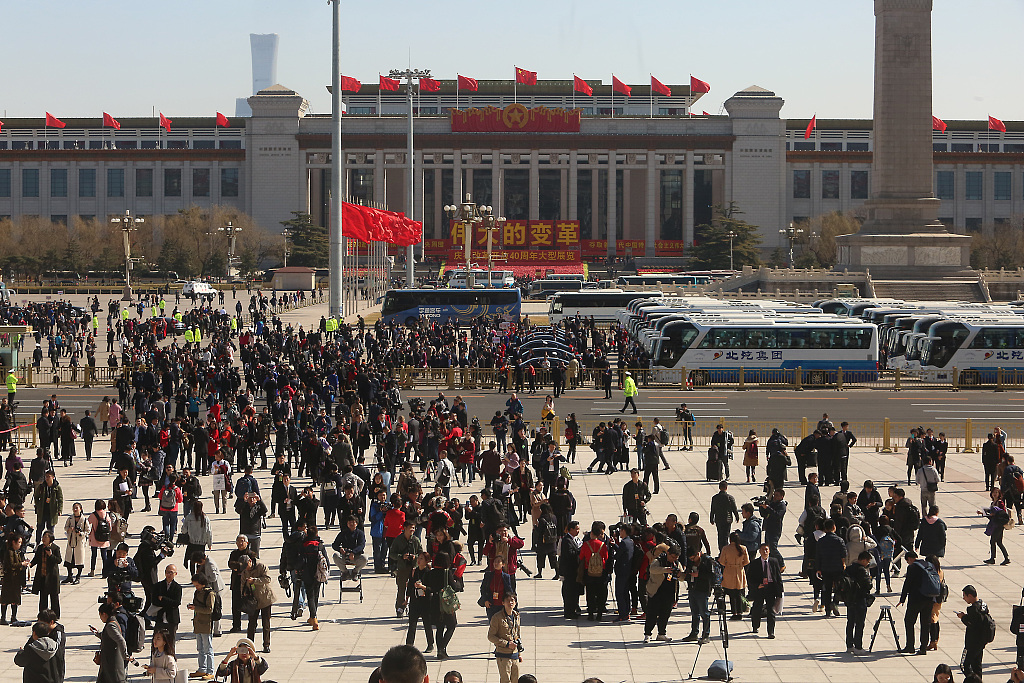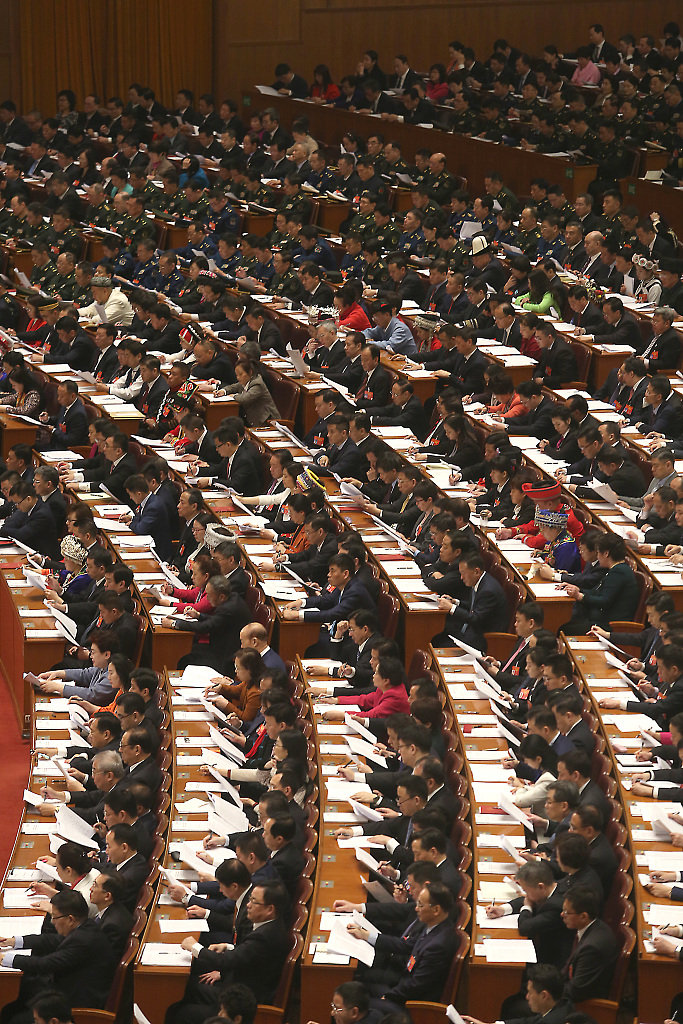A draft foreign investment law is expected to improve transparency of foreign investment policies and ensure that foreign-invested enterprises participate in market competition on an equal basis, with experts saying the draft targets concerns posed by foreign enterprises.

Two sessions 2019 in Beijing. (File photos and illustration: VCG)
“China’s IPR enforcement has been steadily improving. The European Business in China Business Confidence Survey 2018 showed that 34 per cent of members found China’s IPR enforcement to be at least adequate, a significant climb from 2013 when only 13 per cent said the same. However, there is still considerable room to improve,” Mats Harborn, president of the European Union Chamber of Commerce in China, said in an email reply to the People’s Daily.
Shao Yu, chief economist at Shanghai-based Oriental Securities, told the People’s Daily that the deliberation of the foreign investment law is continuing the momentum of China’s further opening-up.
“The negative list system is now mature enough to be compared to practices in developed countries, this will significantly benefit foreign investors. The feedback from foreign enterprises is expected to be more objective,” Shao said,

Application of the law
One of the uniqueness of the foreign investment law is its simplicity.
“Since it serves as a fundamental law, the foreign investment law regulates matters on foreign investment promotion, protection and management, with a focus on legislative matters that have already reached consensus. For other laws and specific administrative regulations, the State Council will see to it,” Kong Qingjiang, dean of the School of International Law at the China University of Political Science and Law, told the People’s Daily Saturday.
When it comes to implementation, it is expected that the State Council will develop regulations to carry out the Foreign Investment Law in accordance with the statutory authority to facilitate the application of the law, Kong noted.
“Local law reinforcement is a legacy issue, and solving the mechanism for the remedies identified by the law and the accountability is needed,” Kong said.
Strengthening protection of property rights of foreign-invested enterprises is the top priority in the Protection of Foreign Investment section, according to the explanation document to the draft law presented by Wang Chen, vice chairman of the National People's Congress (NPC) Standing Committee, to deputies attending an NPC plenary session on March 8.
“A broad prohibition [to intellectual property rights infringement] would be better here. However, it is not enough to put this sort of commitment into a law, it must also be realized.
Perhaps raising this to the level of a law might help, but better mechanisms to enforce a prohibition on this practice are clearly needed,” Harborn stressed.
“Take Article 25. The foreign investment law stipulates that when foreign-invested enterprises or their investors believe the administrative organs and their staff members have infringed upon its legitimate rights and interests, they may seek administrative reconsideration and initiate administrative litigation in addition to applying for settlement through the foreign-invested complaint mechanism. This provision not only objectively increases the way foreign-invested enterprises and their investors seek relief, but also is in line with the administrative reconsideration law and the administrative litigation law. It functions as a strong constraint on the local government,” Kong noted.
Meanwhile, the Supervision Law also stipulates that the supervisory committee shall perform duties for acts such as weak enforcement by local governments. A strong accountability system cancurb local government violations of laws and central government orders.

Profit transfer
Harborn also said that European Union Chamber of Commerce in China membership companies are concerned whether there are still restrictions on foreign exchange regulations when foreign enterprises transfer profits back to their headquarters.
Sang Baichuan, director of the Institute of International Business at the Beijing-based University of International Business and Economics, told the People's Daily that [foreign enterprises] are subject to supervision, and their normal remittance of profits is protected by law.
“Article 21 of the Foreign Investment Law establishes the right of foreign-invested enterprises to convert freely, transfer the profits of enterprises to foreign countries,” Kong reaffirmed.
“This is also consistent with the current Foreign Exchange Regulations and policies.
“If it means that the foreign investment law takes precedence and the statement that the RMB or foreign exchange can be freely transferred overrules the current exchange regime, then this would be a major improvement. We are seeing a China that increasingly is putting in writing legal provisions that answer many of the concerns that we have been raising over the years. This is welcome,” Harborn noted, and said he expects to have a dialogue with authorities in Beijing to deal with local deviations.
Obviously foreign associations like chambers of commerce in China are keen to interpret the new law once it is adopted.
Shao also suggested that the local government will need to step up in communicating with foreign investors with a down-to-earth attitude.
The foreign exchange department's supervision of foreign exchange transfers (such as verifying the authenticity of foreign-funded enterprises' profits and the legality of their actions) is its legitimate authority, which will not and shall not affect the foreign-invested enterprises’ legal rights,” Kong said.


